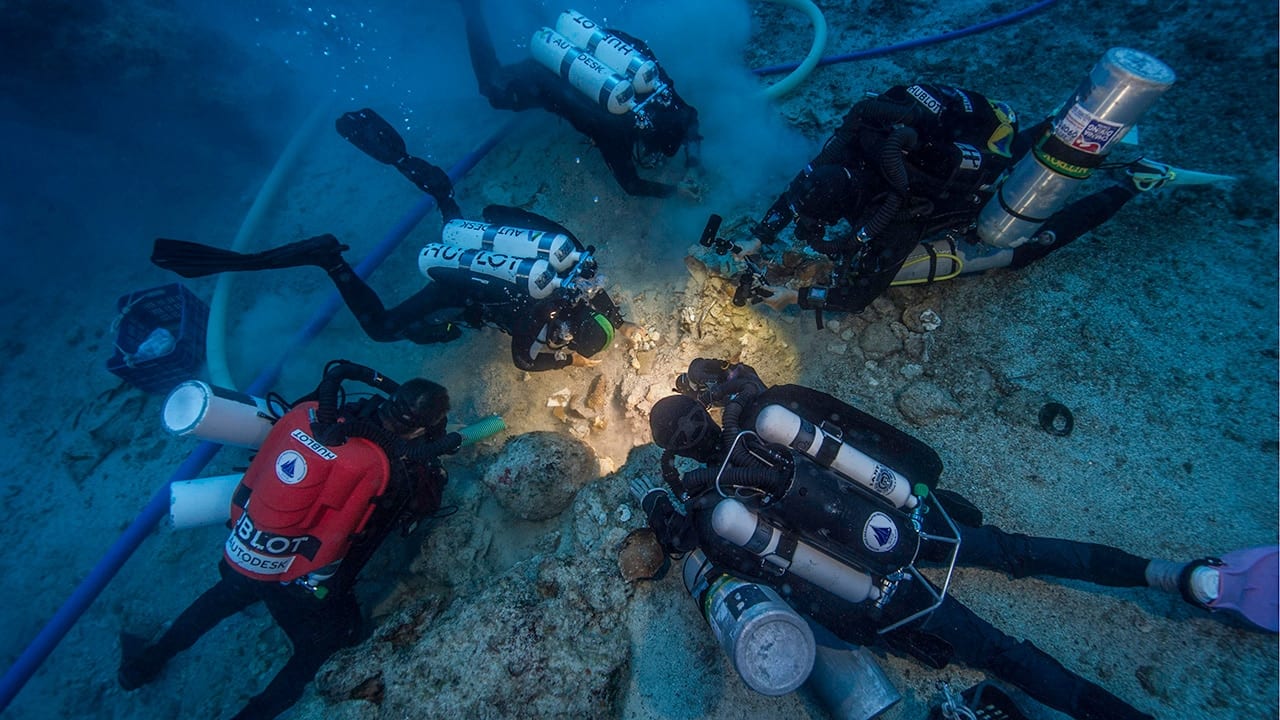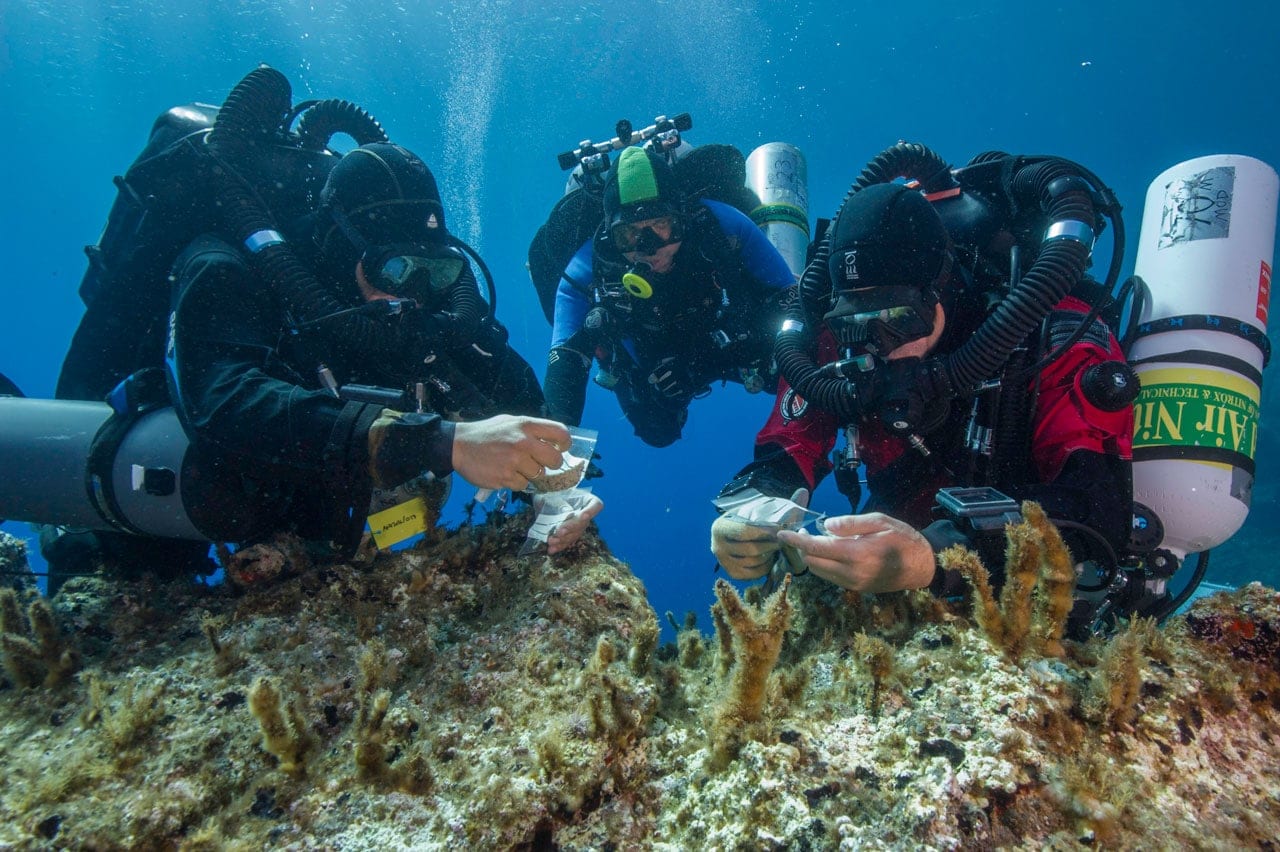News Releases
Ancient Skeleton Discovered on Antikythera Shipwreck
An international research team discovered a human skeleton during its ongoing excavation of the famous Antikythera Shipwreck (circa 65 B.C.) this month. The shipwreck, which holds the remains of a Greek trading or cargo ship, is located off the Greek island of Antikythera in the Aegean Sea. The first skeleton recovered from the wreck site during the era of DNA analysis, this find could provide insight into the lives of people who lived 2100 years ago.
Read MoreArtifacts Discovered on Return Expedition to Antikythera Shipwreck
An international research team led by archaeologists and technical experts from the Hellenic Ministry of Culture and Sports and WHOI has discovered spectacular artifacts during its ongoing excavation of the famous ancient Antikythera Shipwreck off the Greek island of Antikythera in the Aegean Sea.
Read MoreMarine Archaeologists Excavate Greek Antikythera Shipwreck
Archaeologists excavating the famous ancient Greek shipwreck that yielded the Antikythera mechanism have recovered more than 50 items including a bronze armrest (possibly part of a throne), remains of a bone flute, fine glassware, luxury ceramics, a pawn from an ancient board game, and several elements of the ship itself.
“This shipwreck is far from exhausted,” reports project co-Director Dr. Brendan Foley, a marine archaeologist with the Woods Hole Oceanographic Institution (WHOI). “Every single dive on it delivers fabulous finds, and reveals how the ‘1 percent’ lived in the time of Caesar.”
The shipwreck dates to circa 65 B.C., and was discovered by Greek sponge fishermen in 1900 off the southwestern Aegean island of Antikythera. They salvaged 36 marble statues of mythological heroes and gods; a life-sized bronze statue of an athlete; pieces of several more bronze sculptures; scores of luxury items; and skeletal remains of crew and passengers. The wreck also relinquished fragments of the world’s first computer: the Antikythera Mechanism, a geared mechanical device that encoded the movements of the planets and stars and predicted eclipses.
The 2015 expedition is part of a long-term research program at the site, which began in 2014. It was the first scientific excavation of the wreck, and launched the first comprehensive study of all of its artifacts. During the new multi-year program the team expects to recover artifacts and ancient artwork still buried in the seafloor, and recreate the history of the ship’s exquisite cargo and its final voyage.
Read MoreStunning Finds from Ancient Greek Shipwreck
A Greek and international team of divers and archaeologists has retrieved stunning new finds from an ancient Greek treasure ship that sank more than 2000 years ago off the remote island of Antikythera. The rescued antiquities include tableware, ship components, and a giant bronze spear that would have belonged to a life-sized warrior statue.
Read More

